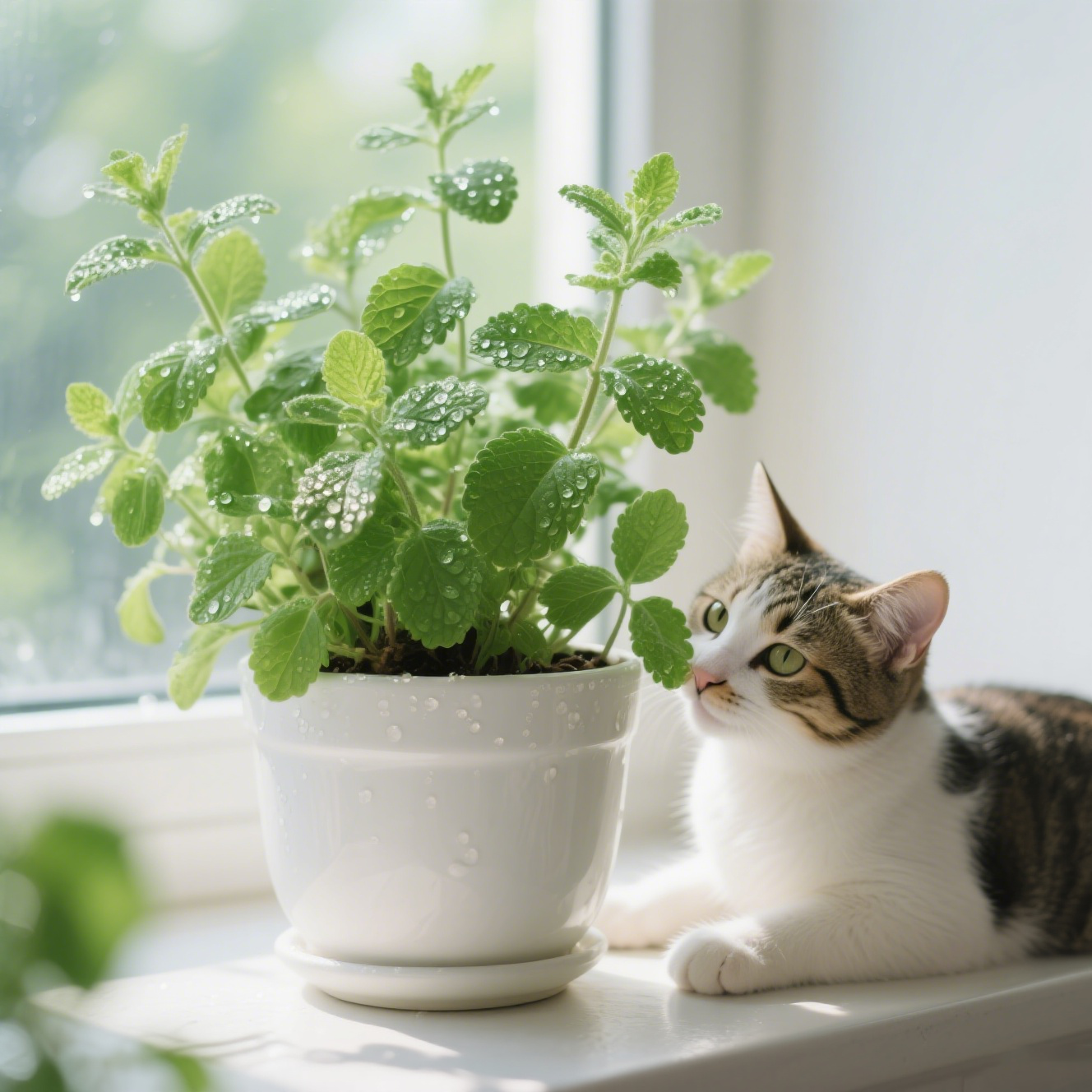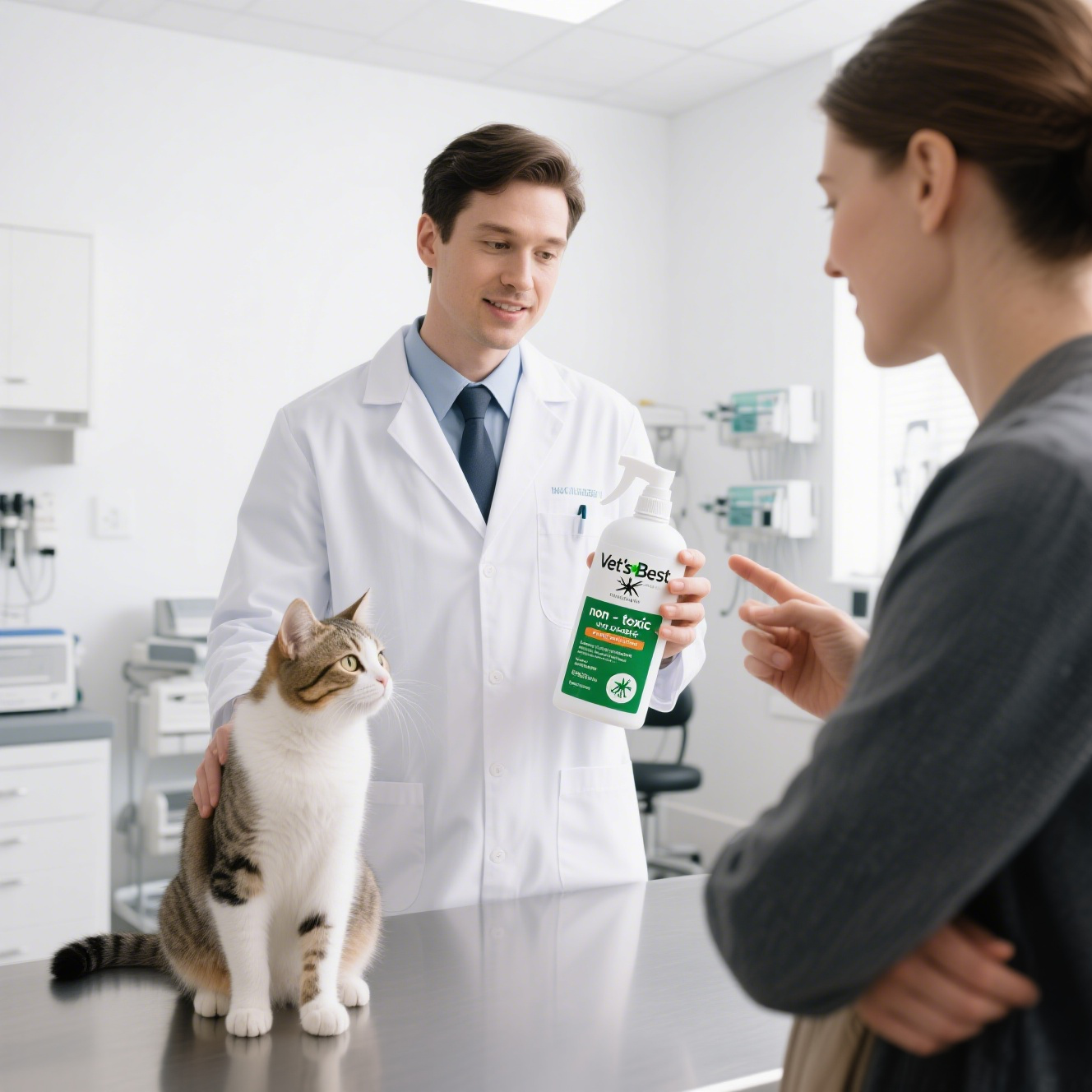
Protecting your cat from mosquitoes while keeping them safe
🐱 How to Choose Safe Mosquito Repellents for Cat Owners
As cat owners, we all want to protect our furry friends from harm—including the hidden dangers in mosquito repellents. While mosquitoes are a nuisance (and potential disease carriers), many common insect repellents contain ingredients that are toxic to cats. So how do you keep your home mosquito-free without putting your feline at risk?
Here’s a complete guide to choosing safe and effective mosquito control solutions for households with cats.
🐾 Why This Matters
Cats metabolize substances differently than humans and dogs, and some ingredients safe for us can be deadly for them. Toxic components in repellents can enter your cat's system through skin contact, grooming, or inhalation.
1. Know the Ingredients: What to Avoid
When choosing a mosquito repellent for a home with cats, always check the ingredient list. Some popular components can be toxic or even fatal to cats.
DEET
Common in many bug sprays but highly toxic to cats. The ASPCA warns against DEET as one of the most dangerous household chemicals for pets.
Permethrin
Often found in dog products but extremely harmful to cats. According to VCA Animal Hospitals, even brief exposure can lead to seizures or death.
Eucalyptus & Tea Tree Oil
Although natural, these essential oils can cause serious liver issues in cats. PetMD confirms their toxicity.
⚠️ Always choose products explicitly labeled as:

2. Cat-Friendly Mosquito Repellent Options
Here are some safer alternatives for repelling mosquitoes in a cat-friendly home:

Natural Mosquito Repellent Plants
Catnip – Interestingly, catnip contains nepetalactone, which repels mosquitoes naturally. Plus, your cat might love it!
Lavender, Lemongrass, Basil – Safe when used in moderation and not ingested. For a full list of cat-safe plants, visit ASPCA's plant database.

Pet-Safe Mosquito Sprays
Look for sprays specifically marketed as "non-toxic to pets" or "cat-safe."
Brands like Vet’s Best or Wondercide offer gentle formulas made with plant-based ingredients. Still, always double-check with your vet before use.

Electronic Repellents & Screens
Consider these cat-safe options:
Electronic mosquito repellers – Ultrasonic devices that are safe for cats.
Mosquito nets – Physical barriers to keep mosquitoes away while your cat sleeps.
Window screens – Prevent mosquitoes from entering your home.
3. DIY Natural Mosquito Repellents for Cats
If you prefer making your own cat-safe mosquito repellent, here are some DIY recipes:
Homemade Spray
Mix 1 cup water with 1/4 cup of witch hazel (a natural astringent).
Add 10 drops of catnip oil (known to repel mosquitoes).
Shake well and spray on pet-safe areas (avoid direct contact with your cat).
Essential Oil Diffuser
Use a pet-safe diffuser with catnip or lemongrass oil.
Ensure proper ventilation and keep your cat away from direct diffusion.
Never apply essential oils directly to your cat.
💡 Important DIY Tips:
Always test a small area first and monitor your cat for any adverse reactions.
Avoid using any essential oils directly on your cat's fur or skin.
Consult your veterinarian before using any DIY repellent on or around your cat.
4. Preventive Measures
Beyond repellents, here are some additional steps you can take:
Around the House
Remove standing water where mosquitoes breed (e.g., flower pots, buckets).
Keep windows and doors screened to prevent entry.
Use fans to create airflow, as mosquitoes struggle to fly in moving air.
Cat Care
Keep your cat indoors during peak mosquito hours (dawn and dusk).
Regularly check your cat for mosquito bites and signs of illness.
Consider mosquito-borne disease prevention medication (consult your vet).
5. Final Thoughts
Protecting your cat from mosquitoes while ensuring their safety requires a balanced approach. Here's a quick recap:
Avoid products containing DEET, permethrin, or essential oils like eucalyptus and tea tree oil.
Choose pet-safe, cat-friendly repellents or natural alternatives like catnip.
Use physical barriers like screens and nets, and keep your home mosquito-free.
Consult your veterinarian for personalized advice and recommendations.
By following these guidelines, you can create a mosquito-free environment that's safe and comfortable for your feline companion. Remember, when in doubt, always consult your veterinarian before using any new product on or around your cat.


